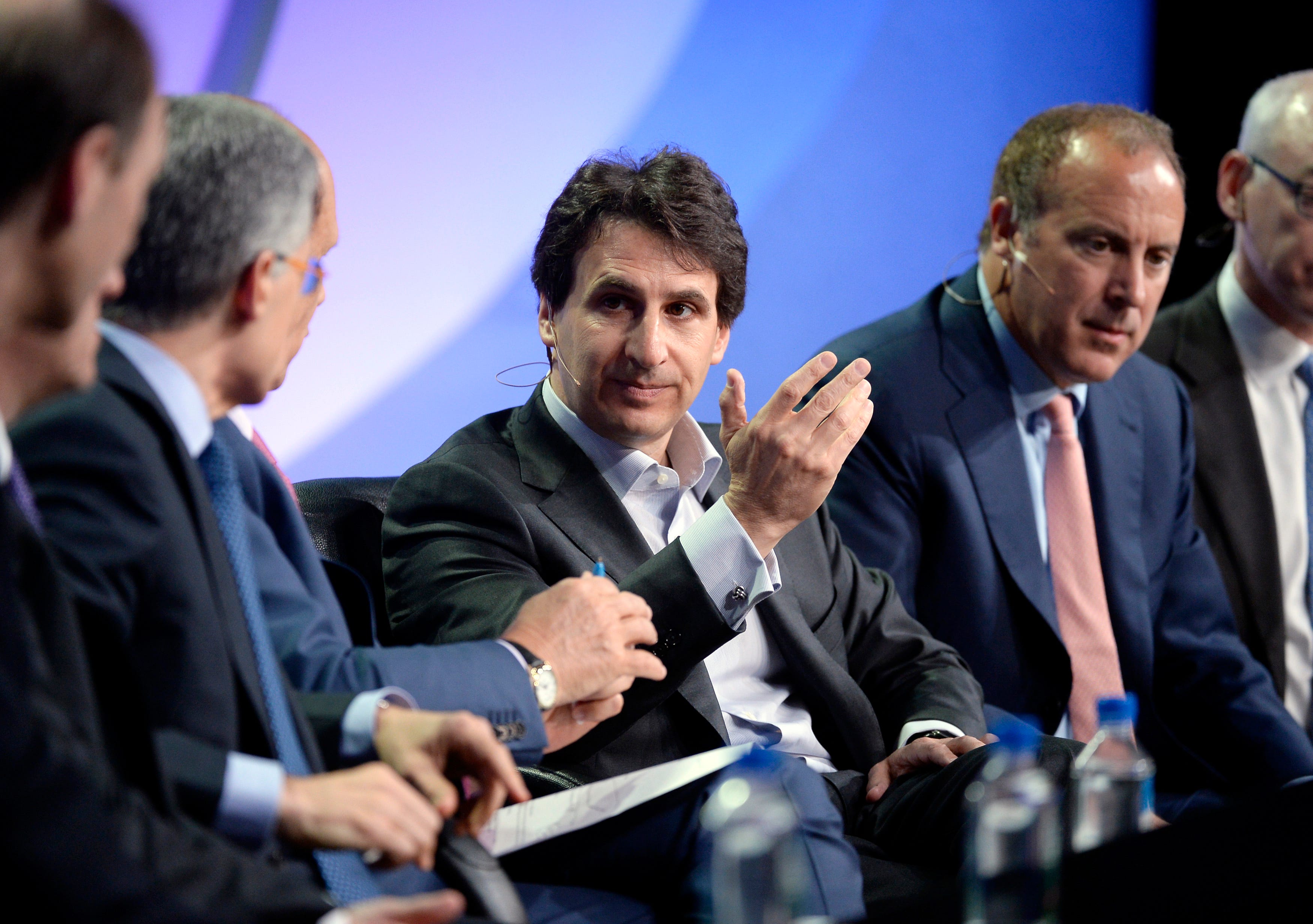
Reuters
Apollo Global Management, known for its nonbank loans, is on a buying spree — but not where you might think.
Since Trump’s tariff wars have wreaked havoc on stocks and bonds, the alternative asset manager has been busy putting its excess cash to work, Mark Rowan, the company’s CEO, said in a conference call to investors.
“We believe we are one of the largest active buyers of assets post-Liberation Day, with $25 billion in April alone,” Rowan said, referring to President Trump’s April 2 rollout of his expansive plan to tax imports, which sent stocks tanking.
The private-market specialist’s biggest target: The publicly traded markets, including bonds, which seized up amid uncertainty over how the tariffs would impact the economy, leading to wide spreads between what buyers would pay for a bond and what sellers were willing to accept.
While the firm has long invested in public assets alongside its private ones, the recent buying spree is a realization of Rowan’s longtime position that bonds are less liquid than private debt during economic downturns.
“There just is no liquidity in publicly traded fixed-income markets, said Rowan, who interviewed for the role of Treasury Secretary under Trump. “And therefore we expect extreme price volatility to the point where sometimes public markets offer better returns on a risk-adjusted basis than private markets,” he added.
Rowan made the comments during the company’s first-quarter earnings call on Friday. The firm announced a record $559 million in fee-related earnings, largely on the strength of its hybrid equity fund, though it missed on its spread-related earnings generated by its insurance arm, causing the firm’s share price to drop 1.50% on the day as of 11:50 a.m.
Jim Zelter, president of Apollo, said recent market volatility was predictable to anyone paying attention to the Trump administration’s messaging.
“The current administration was clear on their objectives pre and post election,” he said, adding, “While the tariffs should not have come as a surprise, the scope and approach clearly rattled markets.”
Zelter said Apollo had been preparing for this moment, including by positioning the firm “defensively in anticipation of this market disruption with dry powder and liquidity to thrive.”
Apollo has the ability to invest its own balance sheet capital from Athene, Apollo’s wholly-owned insurance arm that offers guaranteed income products to its clients, Zelter said.
‘As a reminder, we run our business as an equal opportunity investor wth the ability to pivot between public and private primary and secondary, allowing us to focus on the most compelling risk-reward,” Zelter added.
The firm has also been busy in nonbank loans, citing over 40 direct lending and financing transactions since the tariff chaos kicked off. It’s also been lending to private equity competitors based on fund net asset values.
With M&A largely halted, Zelter said the firm sees opportunities to provide capital to companies that can’t go public, provide liquidity to investors in private funds that need their money now, and act as a source of private capital to publicly traded companies.
Amid all of the optimism and opportunities for investment, there were some signs that Apollo still sees quite a lot of chaos ahead. The firm is investing the $36 billion it raised in the first four months of the year into cash, treasuries, agencies, and paying down leverage to prepare.
“That is not without its cost,” Rowan said. “But it sets us up well in a volatile market.
The post Inside the post-Liberation Day buying spree at Apollo appeared first on Business Insider.




